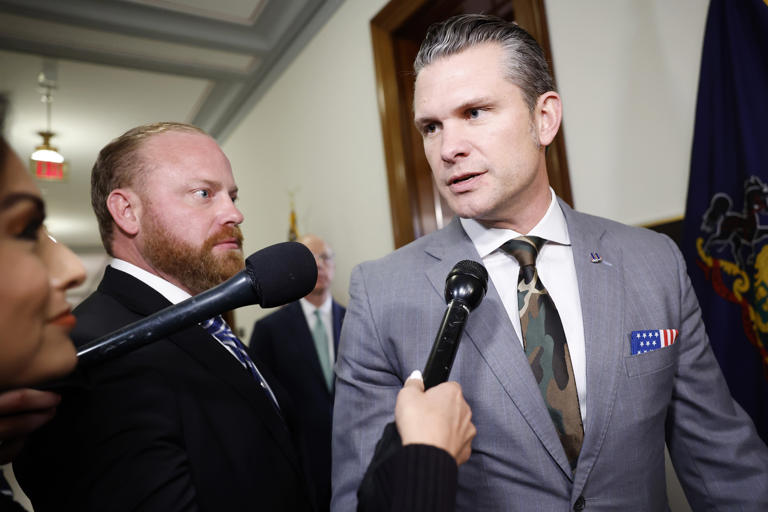“Pete Hegseth Allegedly Blackmailed DOD Confirmation in Jeopardy!”
Pete Hegseth, President Trump’s nominee for Secretary of Defense, recently made a startling admission during an interview with Megyn Kelly. When questioned about paying a woman who accused him of sexual assault, Hegseth admitted, “I paid her because I had to—or at least I thought I did at the time. I had a great job at Fox and a wonderful marriage… I did it to protect that. I did it to protect my wife, my family, and my job. It was a negotiation purely to try to prevent that.”
This admission exposes Hegseth’s susceptibility to blackmail a vulnerability explicitly disqualifying under longstanding national security regulations. Executive Order 10450, in effect since 1953, and Standard Form 86, required for all sensitive positions, both prohibit individuals prone to exploitation or coercion from holding such roles.
Hegseth’s actions align directly with these disqualifiers. His decision to pay the settlement, allegedly to safeguard his personal and professional life, raises red flags. In a role as critical as Secretary of Defense, such vulnerabilities could have grave consequences,especially when dealing with adversaries capable of leveraging them.
Beyond the blackmail issue, Hegseth’s judgment and integrity are also in question. While a years-old, strongly denied accusation might not automatically disqualify him, his choice to conceal the settlement from President Trump and the transition team is troubling. This lack of transparency prioritizes self-preservation over honesty—an unacceptable trait in a national security leader.
Adding to these concerns are contradictions in Hegseth’s accounts of his drinking habits. In an August 2021 interview, he admitted to heavy drinking, stating, “One beer leads to many, leads to self-medication, leads to ‘I’ve earned this.’” Yet, during a more recent interview, he claimed no one ever suggested he had a problem, denying any issue. These conflicting statements suggest either a lack of self-awareness or deliberate dishonesty, both of which undermine his credibility.
In light of these issues—blackmail vulnerability, lack of transparency, and questionable judgment—Hegseth’s suitability for a role as vital as Secretary of Defense is seriously in doubt.
Why Pete Hegseth’s Nomination Poses Serious Risks to National Security
Supporters of Pete Hegseth argue that his payment to a sexual assault accuser is comparable to President Trump’s use of nondisclosure agreements. However, this comparison falls apart under scrutiny. Trump’s agreements never involved allegations as serious as rape or sexual assault, making Hegseth’s situation far more consequential and the comparison invalid.
Even if the allegations against Hegseth were entirely baseless, a leaked email from his own mother paints a damning picture of his character. In the email, she referred to him as “an abuser of women” and accused him of “belittling, lying, cheating, [and] using women for his own power and ego.” While she later disavowed the email, the detailed accusations cannot be dismissed as mere exaggeration or fabrication.
Hegseth has claimed spiritual redemption, and perhaps those claims are sincere. But personal salvation does not equate to the ability to protect national security. As Secretary of Defense, he would face immense responsibilities and threats. His vulnerability to blackmail, combined with his inconsistent statements and questionable judgment, poses unacceptable risks to the safety of the nation.
The stakes are simply too high to take such a gamble. For the good of the country, the Senate must reject Pete Hegseth’s nomination.
The views expressed in this article are the author’s own.
